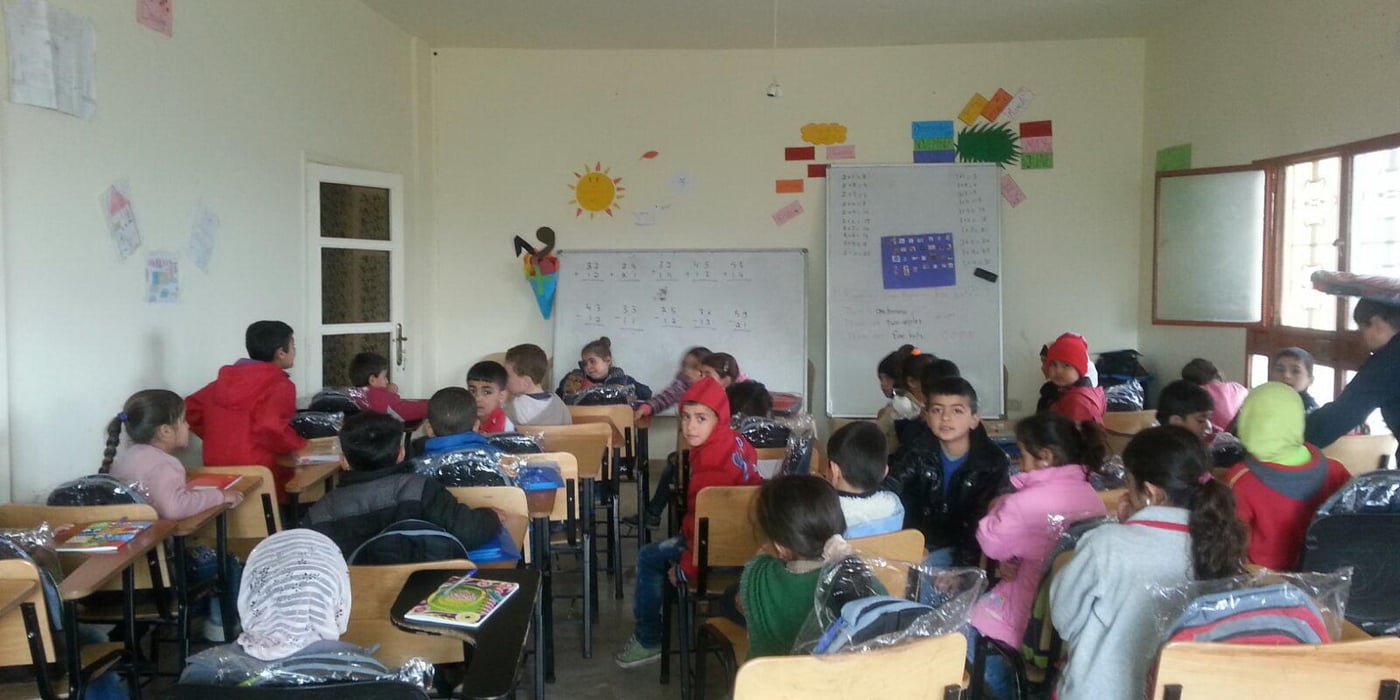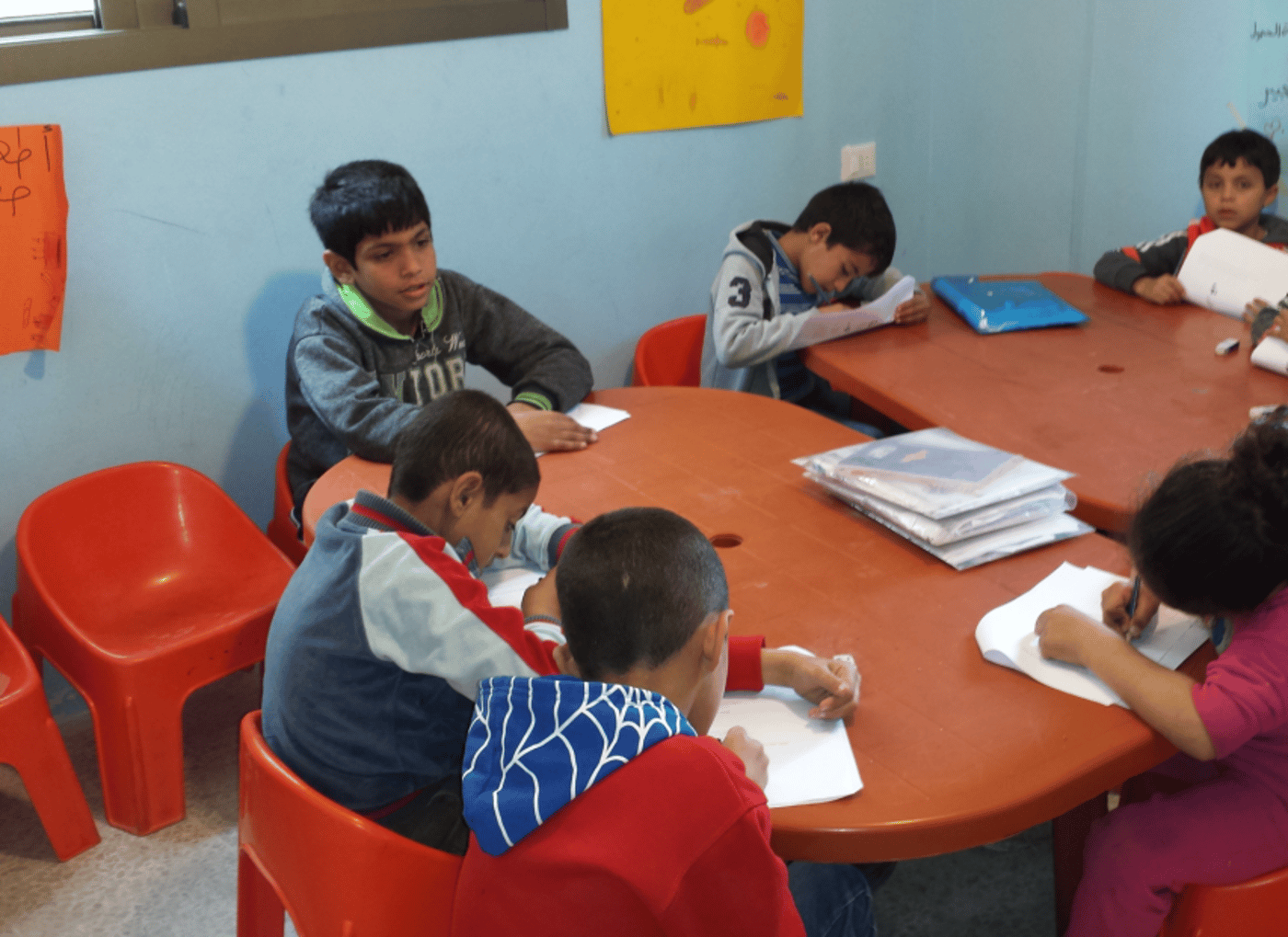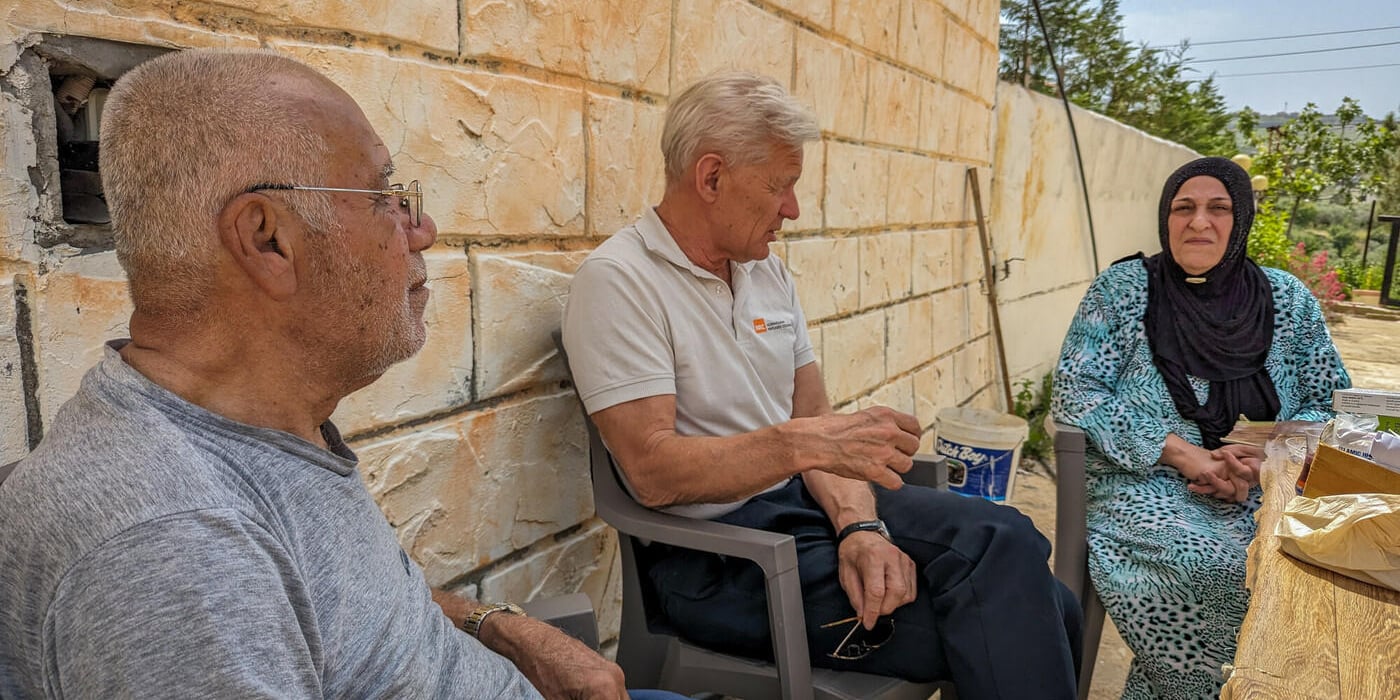
Myassar (8) og Ahmad (7) er to brødre som startet opp i Flyktninghjelpens prosjekt for læringsstøtte i Bourj al-Shemali i Tyre. Guttene ble oppdaget av Flyktninghjelpens utdanningsteam mens de lekte i gatene der de bodde. De hadde sett de andre barna på læringssenteret og var nysgjerrig på om ikke de også kunne delta. Flyktninghjelpen tok kontakt med skolen i nærområdet og fikk bekreftet at brødrene allerede var registrert. Gjennom skolens rektor fikk de tilgang på resultater som gjorde at de kunne kartlegge kunnskapsbehovene deres.
Guttene ble tilbudt transport både til det læringsfremmende kurset, og til skolen sin, for å sørge for trygt og jevnlig oppmøte. De første ukene ventet Myassar og Ahmad i spenning på at portene skulle åpne. Både midtveisvurderinger og tilbakemelding fra rektor viser at brødrene har hatt stor nytte av kurset og at de begge har forbedret seg betydelig.
Unngår å droppe ut
I desember 2015 ble det opprettet et læringsstøtteprosjekt for flyktningbarn som begynte i den offentlige skolen igjen. Hovedmålet med prosjektet er å hjelpe flyktningbarn som sliter med å holde tritt i klassen, slik at de kan utnytte sitt fulle potensial på skolen, dra nytte av retten til gratis skolegang og unngå å droppe ut fra skolen.
– Kursene for læringsstøtte er med på å gjøre en forskjell for flyktningbarn som møter flere utfordringer i det offentlige libanesiske skolesystemet. De har et behov for ekstra støtte, spesielt i engelsk da barna ikke er vant med å studere på et fremmedspråk, sier utdanningsspesialist for Flyktninghjelpen, Marta Schena.

563 barn får hjelp
Barna ble i oppstarten av prosjektet fulgt opp på de offentlige skolene av Flyktninghjelpens eget utdanningsteam. For å avgjøre hvilke barn som hadde størst behov for læringstøtte, ble det arrangert kartleggingsprøver basert på libanesisk skolepensum. Hele 563 barn mellom 6 og 14 år ble registrert i prosjektet og fordelt på sju utvalgte prosjektområder i byene Tyre, Saida og Nabatiyeh.
Det ble rekruttert 22 lærere og 10 aktivitetsledere som alle ble lært opp av Flyktninghjelpens utdanningsteam. Disse sørger for å gi barna konsekvent og kvalitetssikret kunnskap i fagene arabisk, engelsk og matematikk. Prosjektet vektlegger også forhold som forhindrer barna i å delta i vanlig undervisning. Alle ble derfor tilbudt transport til læringssenteret, og utstyrt med nødvendig skolemateriell. Det ble også opprettet foreldregrupper i hvert område for å informere og involvere foreldrene i barnas læring.
Barna er entusiastiske og tydelig engasjerte når de kommer til Flyktninghjelpens senter. De føler seg hjemme og akseptert her.Marta Schena, utdanningsspesialist i Flyktninghjelpen
Får begynne i fjerde klasse
Ni år gamle Lilas deltar også i Flyktninghjelpens program og har hatt stort utbytte av det. Jenta går i tredje klasse på en offentlig skole i området Shebaa. Da hun først startet på skolen, gikk det fint, men etter noen uker fikk moren beskjed fra skolens rektor om at Lilas slet med å holde tritt med de andre i klassen og stod i fare for ikke å fullføre tredje klasse. På grunn av en ustabil situasjon, både i familien og økonomisk, valgte moren å melde datteren på Flyktninghjelpens prosjekt for læringsstøtte.
Etter kort tid gjør Lilas det bra og viser framgang i alle de tre fagene. Nå gleder hun seg over å ha fullført tredje klasse og ser frem til fjerde klasse, som hun har fått bekreftet at hun kan begynne i til høsten.
– Barna er entusiastiske og tydelig engasjerte når de kommer til Flyktninghjelpens senter. De føler seg hjemme og akseptert her, forteller Marta Schena.
Kurset foregår i hvert av de sju utvalgte områdene og går over tre måneder med undervisning tre timer om dagen to dager i uka. I mars 2016 ble det gjort en midtveisvurdering av alle barna som deltok i prosjektet. Den avdekket at hele 70 prosent av barna hadde forbedret resultatene sine i alle fag, siden første kartleggingsprøve i februar. En slik progresjon gjør det mulig for barn preget av konflikt og flyktningkrisen å delta i det libanesiske skolesystemet, og nyte sin rett til skolegang på lik linje med de andre barna.


